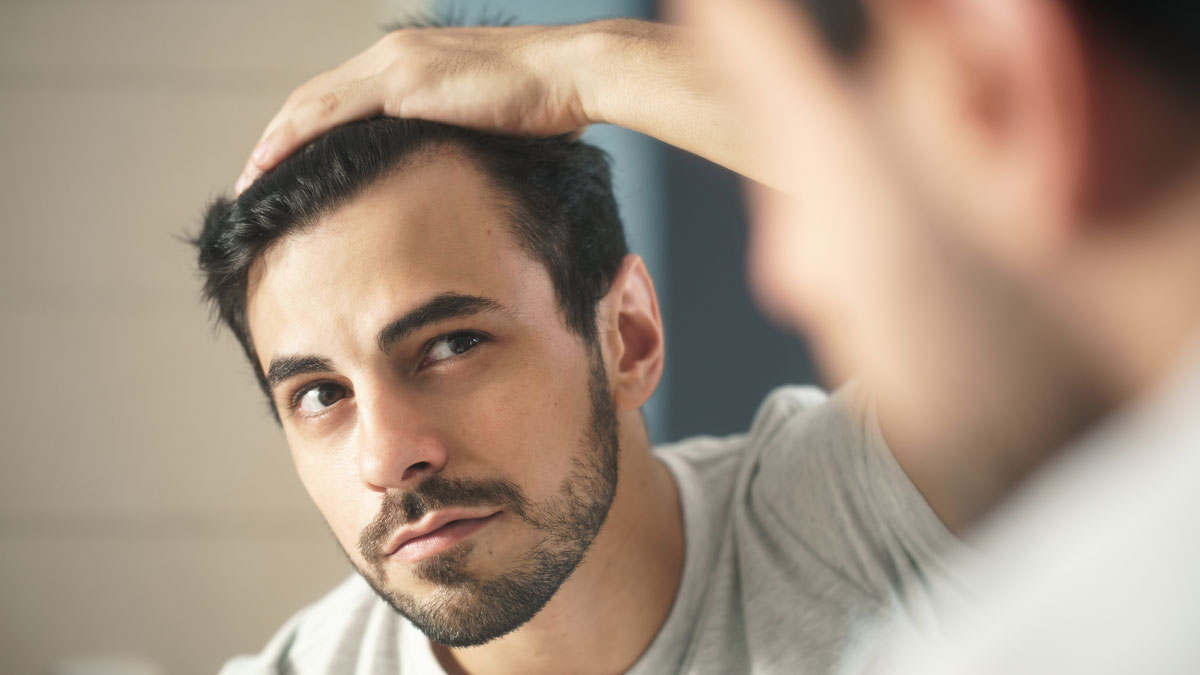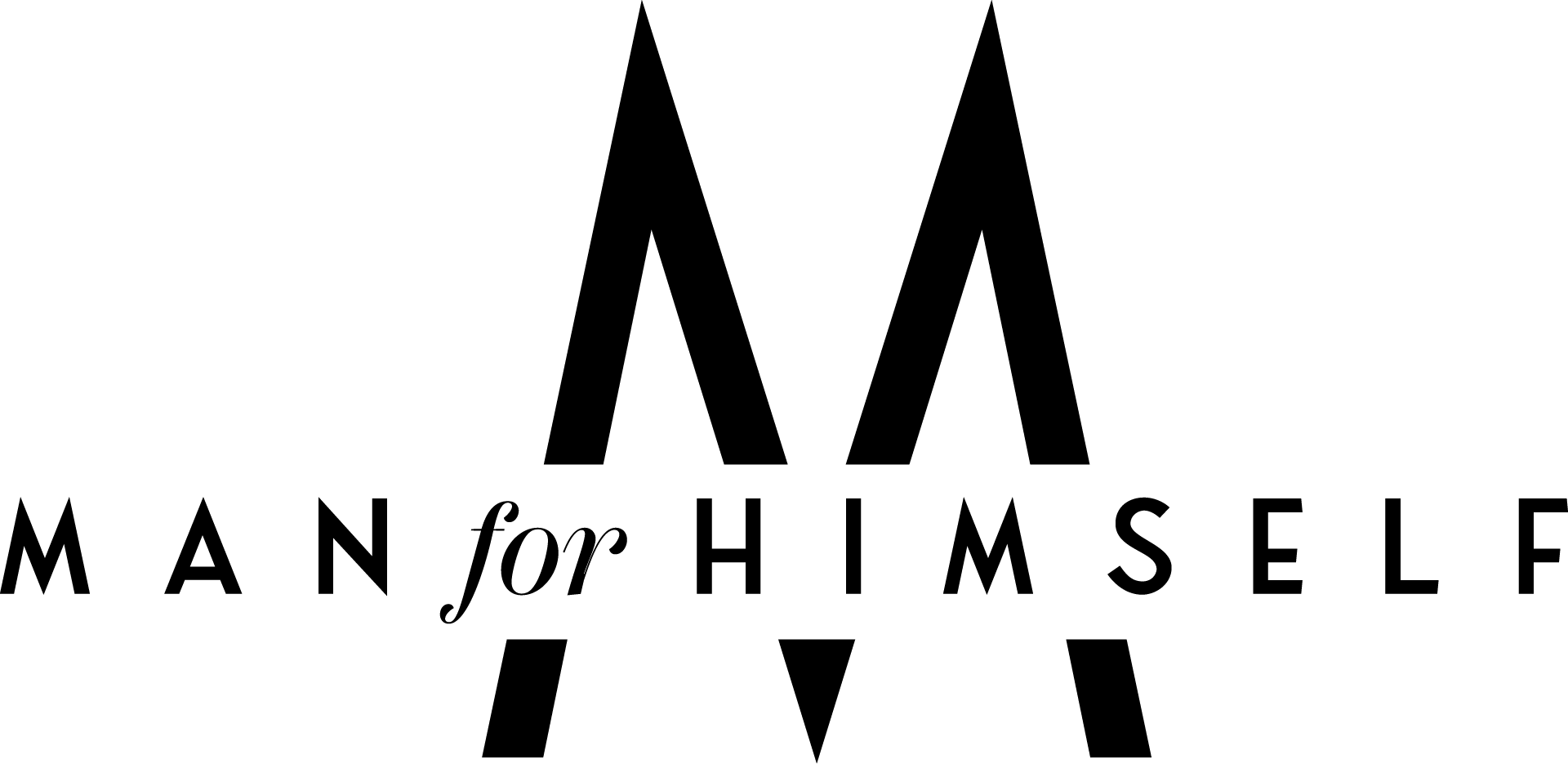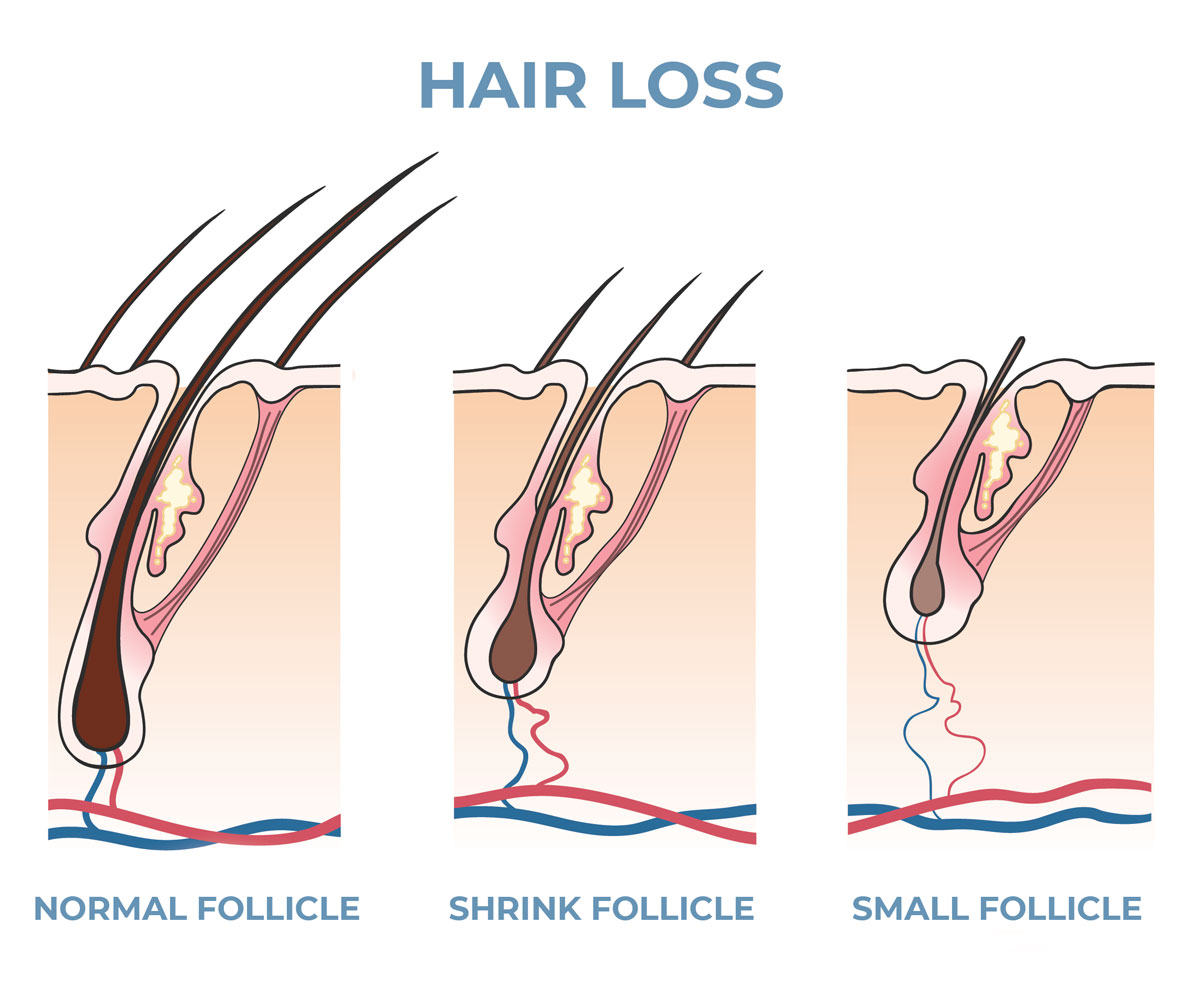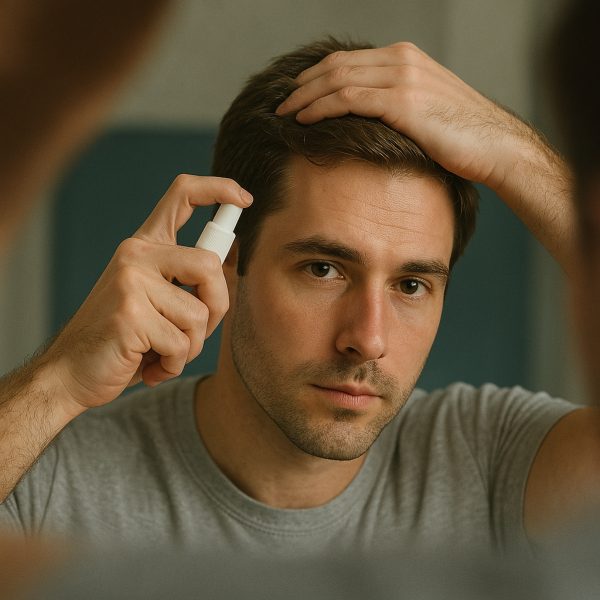
What Causes Hair Loss?
Hair loss can be caused by a variety of factors – some genetic, some lifestyle.
- Age – On average, 40% of men start losing their hair by the age of 35. At age 60, 65% of men experience hair loss; while 80% will have lost it by their 80s.
- Hormones – Dihydrotestosterone (DHT) – a hormone associated with, and stronger than testosterone – can bind to the hair follicle. This shrinks the follicle, cuts down the growth cycle, eventually leading to hair loss.
- Health – Prostate cancer, high blood pressure, diabetes and obesity may cause thinning and hair loss. Anticoagulant medications, blood thinners, Vitamin A or iron deficiency and supplements have been proven to also trigger the thinning of hair.
- Stress – The stress of an illness or undergoing a major surgery might lead to sudden hair loss known as telogen effluvium. Hair follicles are forced into a ‘resting phase’ and this can be marked by shedding chunks of hair over a short period. This, however, is not permanent and your hair should eventually grow back.
- Genetics – Baldness can be hereditary within your family.
Can Hair Loss Be Reversed?
For many of the causes of hair loss, changes in your diet and environment, can make a huge difference to your general health and hair growth! And of course, you can also look to cosmetic remedies such as a hair transplant.
But to really reverse hair loss, you need to go to the root of the problem: DHT.

Understanding DHT
If you search DHT, you will find a vast amount of information about it – all linked to hair loss. Although it can be overwhelming, it’s actually relatively simple to understand.
DHT (dihydrotestosterone) is an androgen (a male sex hormone) which gives us guys our male characteristics, particularly at the stage of puberty. For example: a deeper voice, changes in fat distribution, growth of penis and testicles, and increase in body hair and muscle mass.
While DHT is necessary during the early stages of life, as we age, it is of no known benefit to adults. Unfortunately, once formed, DHT causes havoc for hair follicles.
Testosterone enters the hair follicle of both men and women through gateways known as androgen receptors. Once the testosterone enters the follicles, it interacts with an enzyme, called 5a-reductase. Once that interaction occurs, DHT is produced 1. It connects to the androgen receptors at the base of the hair follicles. This then leads to a process called “miniaturization”.
How does DHT cause hair loss?
Although DHT is needed for the production of hair around the body, it is harmful to the hair on our heads.
DHT physically acts as a barrier as it it attaches to the androgen receptors on the hair follicles. It basically ‘starves‘ them of nourishment which causes the hair to become weak, or brittle, and fall out. These are called velus hairs, which are similar to the hairs that grow before puberty and disappear due to androgens.
It might all sound rather depressing, but don’t panic as the effect of DHT doesn’t happen overnight. The typical life cycle of a hair is usually two to six years and DHT will gradually shorten this lifespan. As well as shrinking the follicles, it can lengthen the time that the follicles take to make new hairs, once they have fallen out.
How To Block DHT
There are various suggested ways to try and reduce the production of DHT in the body. There is a wealth of medication available but it is very important you do your research before looking into these, as there can be some unwelcome side effects.
DHT ‘blockers‘ and ‘inhibitors‘ are typically used to reduce the effects of DHT. Inhibitors will work to lower the production of DHT and blockers will prevent the binding of DHT at androgen sites on the follicles.

Shampoo
As DHT must be blocked to help reverse hair loss, certain shampoos and conditioners contain ingredients which studies establish have the ability to to target hair loss and help block DHT.
Hair Restoration Laboratories have created a highly potent shampoo and conditioner products which work to optimise the quality of your scalp and supports healthy hair growth.
Unlike many commercial shampoos and conditioners, their products are free of parabens, sulfates, phthalates, silicone and harsh chemicals. They also have no drugs or side effects
Their Original Strength Hair Restore Shampoo, Professional Strength Hair Restore Shampoo and Hair Restore Conditioner contain their proprietary DHT Halting Technology® and are loaded with the maximum amount of amino acids, vitamins, nutrients and antioxidants to support the growth of thicker, healthier and stronger hair.
The shampoo and conditioners contain over 20 ingredients that have been proven to assist in the blocking of DHT. Some of these include:
- Saw Palmetto: Multiple studies establish saw palmetto’s ability to encourage optimal hair growth by targeting DHT, the main culprit of genetic hair loss.
- Biotin: An essential B-vitamin that promotes healthy hair growth and overall hair health. This ingredient strengthens both the hair follicle and the hair shaft, from which the hair grows.
- Pumpkin Seed Extract: Studies establish that pumpkin seed extract stimulates healthy hair growth by suppressing the harmful effects of DHT and increasing circulation to the scalp.
- Caffeine: Studies establish that caffeine stimulates hair follicles to grow thicker and stronger hair.
- Green Tea Extract: Studies establish that green tea extract is rich in polyphenols. Polyphenols stimulate hair follicles, improve hair anchoring and promote stronger, healthier looking hair.
- Black Cumin Oil: Black seed oil is rich in antioxidants and fatty acids that can strengthen the hair and improve scalp health.
- Pygeum Bark Extract: Studies establish that this extract stimulates circulation to the scalp and helps vital nutrients reach hair follicles where they are needed.
Hair Restoration Laboratories have some pretty solid reviews online and there are loads of guys that swear by their products. You can check out their products here.
As with all hair loss products, results using the Hair Restoration Laboratories’ products will vary and depend upon a variety of factors beyond Hair Restoration Laboratories’ control. It is recommended that you consult with a physician before commencing use of their products or any other hair loss/regrowth treatment.

Finasteride
The most common medication for hair loss is finasteride (sold as Propecia). This is prescription-only medication that you will need to speak to the doctors about.
Finasteride cannot provide a permanent cure for hair loss, so if you stop taking it, your hair loss will resume. Any new hair that has grown will fall out after you have stopped taking finasteride2.
Minoxidl
There is also minoxidil (Rogaine) which loosens blood vessels so blood can easily pass through and nourish the follicles and helps promote hair growth. Whilst it’s not technically a DHT blocker, minoxidil highly effective treatment for hair loss. It has been proven to stop male pattern baldness in over 60% of men. Regaine (a minoxidl product) is not a prescription drug and can be bought online and on the high street.

























































Hi there,
What would you recommend between Hair Restoration Laboratories shampoos and Nizoral?
many thanks!
Very helpful.